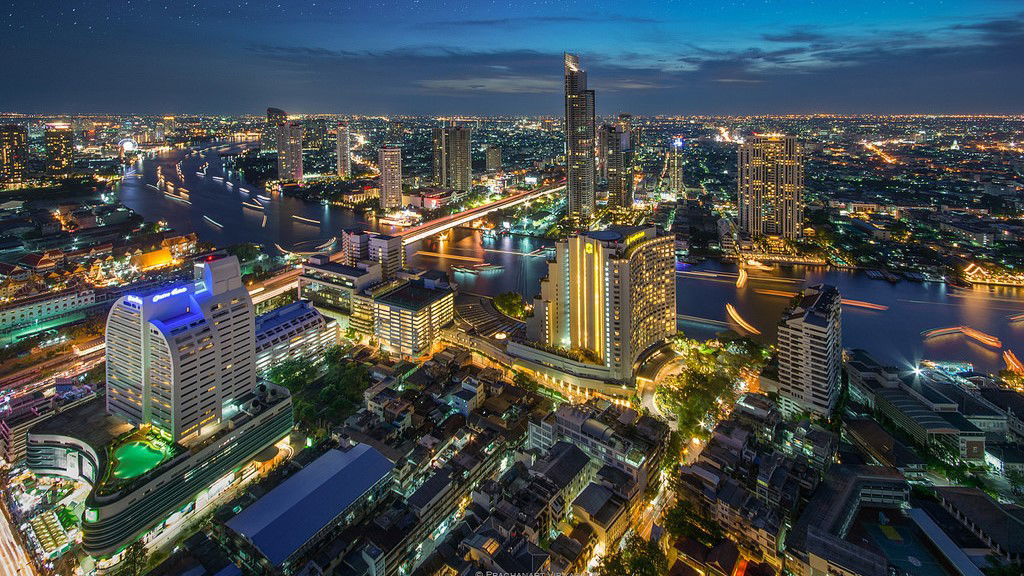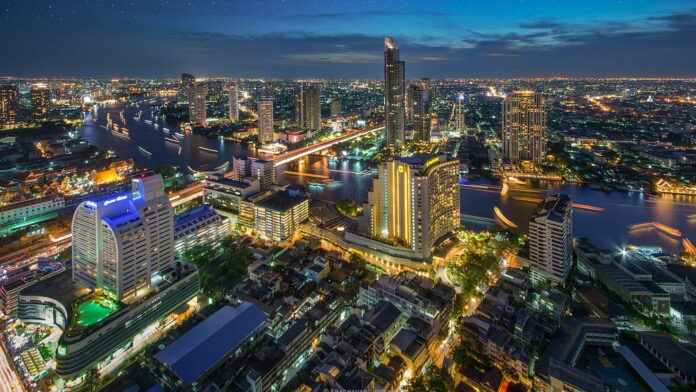
A recent study by brokerage CLSA forecasts that a legalized casino market in Thailand could generate annual gross gaming revenues (GGR) of $15.1 billion, positioning it as the third largest globally. This projection is based on Thailand’s anticipated growth in tourism, particularly from China and India, and favorable regulatory conditions.
The report, authored by analysts Jeffrey Kiang, Naphat Chantaraserekul, and Leo Pan, estimates that Thailand could attract 39 million visitors annually, with each spending an average of $386, comparable to Singapore’s gaming market.
The analysts predict that the country’s relatively low 17% gaming tax rate and lack of strict caps on gaming tables and slot machines could result in an EBITDA margin of around 40%, similar to that of Singapore’s integrated resorts like Marina Bay Sands and Resorts World Sentosa.
As per CLSA, this translates to an annual gross gaming revenue (GGR) of $2.1 billion and an EBITDA of $805 million per complex, with a return on invested capital (ROIC) of 23.9% and an estimated payback period of around four years once fully operational.
“When comparing this data with other markets, Thailand would rank as the third-largest gaming market [based on] 2023 [levels]. We consider Singapore a good proxy for Thailand due to similarities in geography, visitor mix and overall appeal as a travel destination,” CLSA said.
Thailand’s government initiatives to improve tourism infrastructure are expected to boost its appeal to key markets, especially China and India, which collectively made up 33 percent of Thailand’s visitors in 2019. Currently, travel penetration rates are 0.8 percent for China and 0.1 percent for India, which are considerably lower compared to other Asian countries, where rates range from 1.4 percent to 14.5 percent. This indicates substantial growth potential in these markets.
Despite these developments, CLSA does not foresee a significant impact on Macau’s dominant position in the global gaming market. The distinct differences in visitor profiles and market offerings between Macau and Thailand are expected to allow both markets to thrive concurrently.
As per the report, the potential legalization and development of Thailand’s casino market could present a new growth avenue for Macau’s gaming operators. Thailand’s business-friendly environment, coupled with a lower tax rate, could attract investment from major international casino operators.
The study suggests that companies like Galaxy Entertainment may consider expanding into Thailand, while others like Melco and SJM might focus on their existing investments due to strategic and financial constraints.
US-based operators with interests in Macau, such as MGM, Wynn Macau, and Sands China, are also expected to explore opportunities in Thailand. MGM, in particular, may leverage increased dividends to fund its expansion, while Wynn and Sands could similarly pursue new concessions.
Original article: https://www.yogonet.com/international/noticias/2024/07/29/73578-thailand-39s-potential-15-billion-casino-market-could-become-the-world-39s-third-largest
















